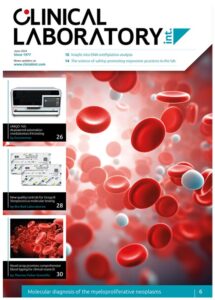A newly-discovered tumour suppressor gene affects melanoma survival
Of the hundreds of genes that can be mutated in a single case of melanoma, only a handful may be true “drivers” of cancer. A Weizmann Institute of Science team has now revealed one of the drivers of a particularly deadly subset of melanomas – one that is still seeing a rise in new cases. This gene is a newly identified member of a group of genes called tumour suppressor genes. It is mutated in some 5.4% of melanomas. Furthermore, its expression was found to be lost in over 30% of human melanomas; and this loss, according to the finding, was associated with reduced patient survival. This discovery might open new doors to understanding how this cancer grows and spreads, and it may lead in the future to new directions in treating this disease.
Prof. Yardena Samuels and her team in the Institute’s Molecular Cell Biology Department were specifically searching for tumour suppressor genes in their database, which consists of more than 500 melanoma genomes and exomes – protein-building sequences – making it the largest melanoma dataset to date. As their name suggests, tumour suppressor genes normally inhibit cell growth, including that of cancer cells. However, when mutated, they act like defective brakes on cellular proliferation. Thus studying these genes is crucial in cancer biology. “The identification of targetable alterations in melanoma is an urgent need. An in-depth understanding of the functional effects of mutations in these genes is the first step toward revealing the underlying mechanism of melanoma growth,” says Dr. Nouar Qutob, a postdoctoral fellow in Samuels’ lab who participated in this research.
Indeed, the melanoma genome sequences contained mutations in known tumour suppressor genes, but there was also a new gene that stood out in the team’s search, named RASA2. The researchers’ next step was to conduct a series of functional experiments to understand exactly what this gene does. They cloned both the normal protein and the most recurrent mutated versions to see their effects on melanoma cells. They found that RASA2 regulates a key protein in the cell, called RAS. RAS has been identified as a major oncogene that contributes to the unchecked growth of cells. When they restored the production of the protein in melanoma cells that harboured RASA2 mutations, these cells stopped growing and eventually died.
Patients with dysfunctional RAS pathways tend to have a worse prognosis than those with other types of melanoma, and, until now, scientists have not managed to create drugs that can target this pathway. “As the RAS pathway is highly dysregulated in cancer, the discovery of an alternative mechanism for its activation is likely to stimulate an avalanche of further research in this field, and is highly likely to have direct clinical relevance. We are now going to focus on RASA2, to find out what proteins it communicates with in healthy cells and melanoma, as well as in the cells’ response to targeted therapy,” says Samuels. Weizmann Insititute


